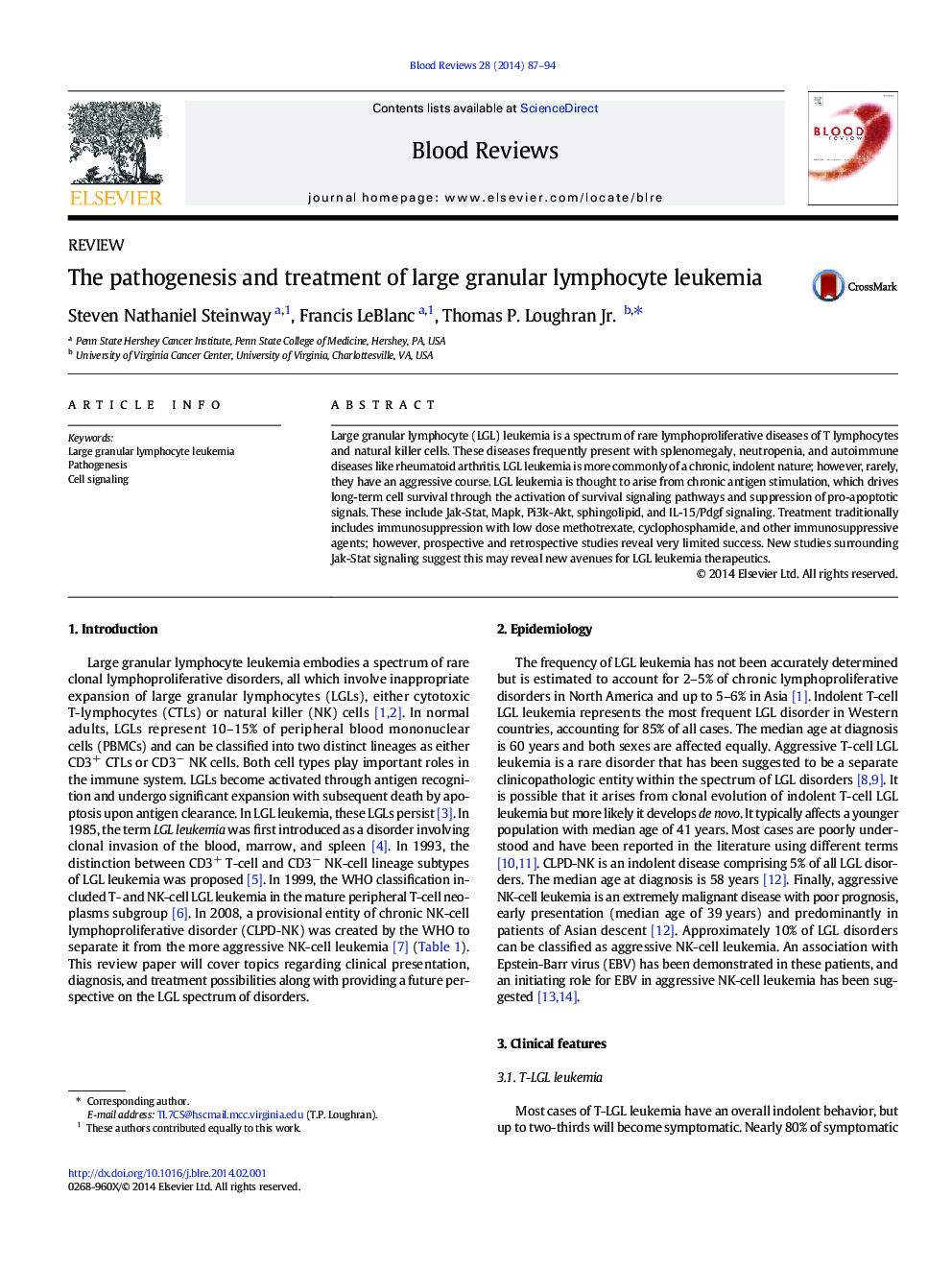| Article ID | Journal | Published Year | Pages | File Type |
|---|---|---|---|---|
| 2106255 | Blood Reviews | 2014 | 8 Pages |
Large granular lymphocyte (LGL) leukemia is a spectrum of rare lymphoproliferative diseases of T lymphocytes and natural killer cells. These diseases frequently present with splenomegaly, neutropenia, and autoimmune diseases like rheumatoid arthritis. LGL leukemia is more commonly of a chronic, indolent nature; however, rarely, they have an aggressive course. LGL leukemia is thought to arise from chronic antigen stimulation, which drives long-term cell survival through the activation of survival signaling pathways and suppression of pro-apoptotic signals. These include Jak-Stat, Mapk, Pi3k-Akt, sphingolipid, and IL-15/Pdgf signaling. Treatment traditionally includes immunosuppression with low dose methotrexate, cyclophosphamide, and other immunosuppressive agents; however, prospective and retrospective studies reveal very limited success. New studies surrounding Jak-Stat signaling suggest this may reveal new avenues for LGL leukemia therapeutics.
